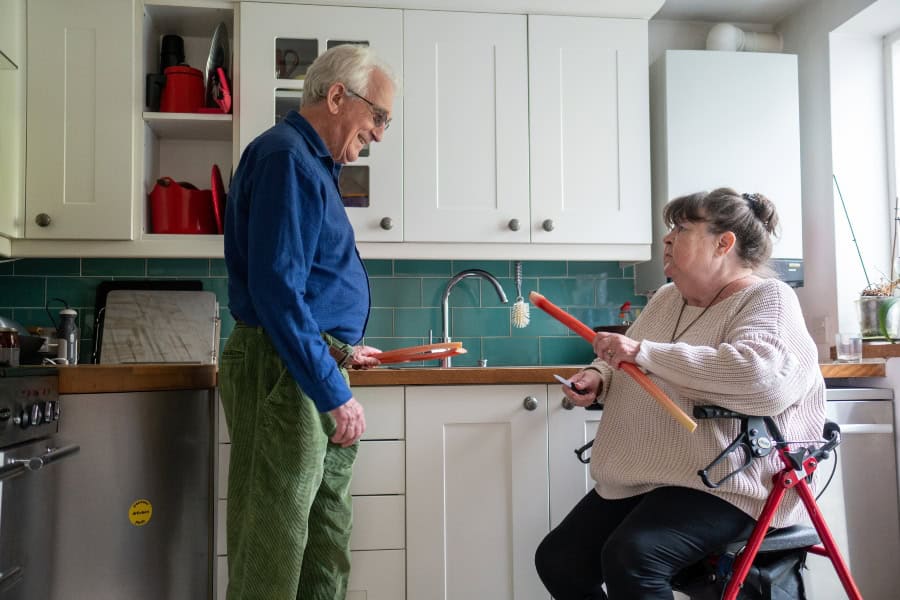The Royal College of Occupational Therapists (RCOT) has commissioned Foundations to work on ‘Housing Without Delay,’ a collaborative project that broadens the scope beyond adaptations, focusing on the critical role of occupational therapists in housing.
‘Housing Without Delay’ aims to integrate the home environment into all occupational therapy interventions. This initiative is not merely about adaptations; it recognises the potential of OTs to influence housing outcomes across varied needs.
Around 20 years ago, the initiative “Minor Adaptations Without Delay” revolutionised access to simple home adaptations for older and disabled residents of Housing Association properties. In 2019, RCOT, alongside Housing LIN, expanded this vision with ‘Adaptations Without Delay’, focusing on more significant adaptations and making best use of OTs’ knowledge and skills.
The new project comprises three components including a ‘strategic document’, which will target health and social care leaders. The document will highlight how OTs can shift from a reactive to a preventative care model by utilising the home environment as a health intervention. It will showcase IT contributions across housing design, allocation, and skill development for maintaining homes.
Additionally, ‘operational tools’ will offer resources for operational managers. This section provides practical examples to optimise OT skills across housing, social care, and health sectors. It will include guidance on competencies and frameworks for implementation.
Also, ‘practitioner resources’, the final component, will provide tools and frameworks for practitioners interested in expanding their practice into housing, supporting direct client work.
Research from the King’s Fund and Public Health England emphasises poor housing’s significant public health costs, estimated at £1.4 billion annually for the NHS. OTs’ understanding of housing’s impact on physical and mental health highlights the need for this expanded focus. ‘Housing Without Delay’ will address these broader determinants by promoting housing as a critical element in health and wellbeing.
The timing of ‘Housing Without Delay’ aligns with significant shifts in health and social care policies, emphasising community care and proactive prevention. With integrated care systems (ICS) recognising housing’s role in reducing hospital admissions, the initiative is timely, according to Foundations.
By 2035, a projected 35 percent increase in those over 65, mostly with multiple health conditions, highlights the urgency of appropriate housing solutions, according to Foundations.
In the upcoming months, RCOT and Foundations will develop evidence-based resources, gather impactful case studies, consult with experts, and design practical tools for strategic leaders, managers, and practitioners.
RCOT and Foundations invite professionals to participate in this transformation by sharing experiences from the intersection of housing and health; to attend upcoming webinars and workshops; explore incorporating housing considerations into current practices; and collaborate with colleagues across sectors to explore new working methods.
The project aims ensure timely and appropriate housing solutions that support health, wellbeing, and occupational performance for all.
‘Housing Without Delay’ marks a key point in addressing housing as a health determinant, says Foundations. By expanding the focus beyond adaptations, the project recognises the comprehensive role OTs play in creating housing solutions that promote health and wellbeing across the entire system.
The project is sponsored by accessible toileting specialist Closomat.
Foundations, the national body for the Disabled Facilities Grant (DFG) and home improvement agencies in England, has launched the ‘game-changing’ new Home Adaptations Installer Network.
The post New project will focus on the potential of OTs in influencing housing outcomes appeared first on AT Today – Assistive Technology.

